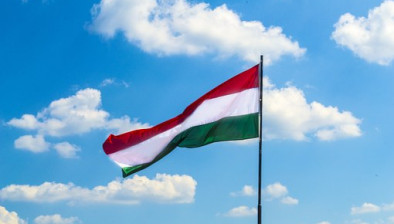Report: Rule of law in Ireland has regressed in some areas

The rule of law in Ireland has regressed in a number of areas, including systemic human rights issues, according to a new report.
The Liberties Rule Of Law Report 2023 assesses the state of justice, corruption, media freedom, checks and balances, civic space and systemic human rights issues in 2022, as compiled by 45 human rights organisations in 18 countries across the EU.
In Ireland, the report finds that there has been progress in the past year on two issues (justice system; media environment and freedom of expression and of information), no progress on one (anti-corruption framework) and regression on three (checks and balances; enabling framework for civil society; systemic human rights issues).
It recommends that the Irish government engages with survivors of mother and baby homes and victims of abuse in day-schools to ensure that compensation schemes and schemes designed to address their needs are compliant with human rights standards.
In the area of public ethics, the report acknowledges “some piecemeal progress in areas such as lobbying regulation”, but points out that a long-promised comprehensive review of ethics legislation has yet to materialise and that progress has been far too slow despite the urgent need for reform.
It also draws attention to the continued rushing of legislation at the end of parliamentary terms, which it says “has resulted in extremely problematic behaviour”.
The Irish organisations feeding into the report were the Irish Council for Civil Liberties, Irish Congress of Trade Unions, Trinity College Dublin School of Law, the Immigrant Council of Ireland, Inclusion Ireland, Intersex Ireland, Community Law and Mediation, Justice for Shane, Mercy Law Resource Centre, Irish Penal Reform Trust, the National Union of Journalists, Age Action Ireland, the Irish Network Against Racism, Outhouse, Irish Traveller Movement, Pavee Point, FLAC and Mental Health Reform.
Liam Herrick, executive director of ICCL, said: “We’ve been tracking the ongoing issues with respect to the scrutiny of legislation for a number of Dáil terms now and it is worrying to see that a number of our partner organisations have raised the same concerns with respect to the passage of bills.
“We’ve also been consistently highlighting the urgent need for new ethics legislation and the ban on foreign funding for civil society advocacy work which is highly unusual in Europe. The government need to take action to stop the backsliding we are seeing elsewhere in Europe.”
Balazs Denes, executive director of the Civil Liberties Union for Europe (Liberties), said: “European governments should realise that by failing to nurture their democracies, they pave the way for extremist politicians who will not hesitate to tear down the whole system.
“Despite Brussels having allowed itself to be blackmailed into taking half measures, we want to see the EU make full use of the conditionality mechanism for both the Polish and Hungarian regimes.
“When funds are suspended, it must be at a level that gives Orban and Kaczynski no choice but to return democracy to their citizens, because Poland and Hungary need the EU to cope with the fallout of Russia’s war in Ukraine.”







